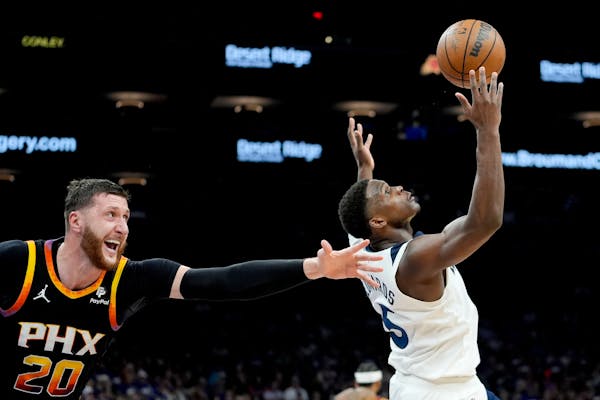Lori Schaefer, 50, St. Paul, marketing strategist, maintaining 200-pound weight loss
Just over two years ago, most of Lori Schaefer's waking hours were spent working. As owner of a firm called Marketing That Matters, Schaefer managed to make time for others — but never herself. Finally, at 381 pounds, she realized that her sedentary, processed-food, work-stressed lifestyle needed to change or she would face severe health consequences. So, when a client called with a prospect of meeting O'Neal Hampton from NBC's reality TV show "The Biggest Loser" to do some work for fitness boot camps near Duluth, Schaefer jumped. She met O'Neal to talk business, but left the meeting with a new mentor and a new vow to "put herself back in the equation of her own life." Now more than a year into maintenance mode in her new lifestyle, Schaefer is fit (she's even done a half-marathon), she's confident and, most of all, she's happy.
I CAN VS. I CAN'T "In December of 2010, I went to a 'Biggest Loser'-style camp for two weeks. It was six to eight hours a day of exercise, pushing yourself way past what you think you're physically capable of. You learn it's your head that quits way before your physical body. At camp I had to be away from business, completely disconnected, with nothing to focus on but myself. I must have said 'I can't' about 50 times a day in the first few days, but of course they don't listen to that and after you fight through the most excruciating pain — until you're sick — you learn you can do it."
AN INNER JOURNEY, TOO "You don't get to be that obese without having other things going on inside. It took 18 months to get off 211 pounds, but it was an internal transformation too, not just physical weight. I attended a leadership retreat for women and did a lot of internal work. What I un- covered through intense reflection was that I didn't accept or love myself; I thought if I did everything for everyone else, I would gain their approval. I had to flip priorities and make me the priority. I started putting health and wellness first and foremost. I shifted my work schedule around, so my workouts were first thing in the morning, and I made sure I got the right amount of sleep. And I learned to say no."
MOLEHILL OUT OF A MOUNTAIN "My doctor, when she cleared me for the camp, said, 'Promise me you'll be the last one up the mountain.' I said, 'I'm too competitive!' and she said, 'No, seriously.' The first time I was last — but literally, it was not by choice. It was the hardest thing I've ever done. We snowshoed the mountain — Oberg Mountain — three or four times while we were there, and I've climbed it about 15 times since then. It's more like a hill to me now."
KEY TO SUCCESS "I lost 21 pounds at camp. That was my jump start, but then I worked with [a trainer] for 18 months on my nutrition plan and training protocol. It was mostly low-carb, high-protein and working out at the right time. The cool thing about it is that I knew if I followed it, it was a guaranteed path to success. The real key is you have to follow it."
LORI 2.0 "Now I've had to ask myself, 'What does Lori in the Equation Phase 2 look like?' I've noticed behavior patterns with food. I'll have to be diligent for the rest of my life. I tend to be an emotional eater, and you don't really get over that. You have to monitor it. I've also learned a lot of strategies just to replace food. Now I exercise and spend time with people to fill that void. I love to be outside. I live near Como Lake where I walk, and I hike the state parks. I even tried cross-country skiing. For the most part I do cardio five to six times a week and strength training."
PAYING IT FORWARD "I wanted to help people struggling with the same issues, so I have two groups of women I work with (her website: http://www.intheequation.com/). So many of the programs are nutrition- or exercise-based, but they don't deal with the internal side. One thing I know for sure is that everybody's path is different. They won't all look like mine."
In heated western Minn. GOP congressional primary, outsiders challenging incumbent

Minnesota Sports Hall of Fame: A class-by-class list of all members

This retired journalist changed professional wrestling from Mankato

